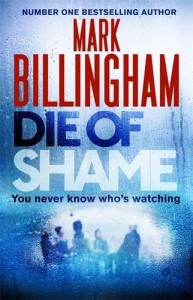 Die of Shame by Mark Billingham
Die of Shame by Mark Billingham
Published by Little Brown UK/Atlantic Monthly US
The Plea by Steve Cavanagh
Published by Orion
Long Time Lost by Chris Ewan
Published by Faber & Faber
The Trap by Melanie Raabe
Published by Mantle UK/Grand Central US
The Last Days of Summer by Vanessa Ronan
Published by Penguin Ireland
This month three men show what vigorous life there still is in traditional forms of crime fiction and two women show how powerful originality 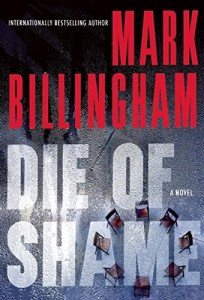 can be.
can be.
Mark Billingham takes the old village mystery and gives it a whole new spin for the twenty-first century. His village is a regular group therapy meeting for recovering addicts. Traditional characters congregate in their therapist’s house to thrash out their difficulties: the rich 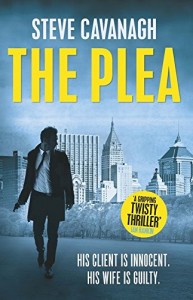 doctor, the bitter elegant divorcée, the overweight spinster, the thin manipulative victim longing for love, and the cocky young man whose infuriating gibes hide quivering vulnerability. The therapist has a dodgy past of his own and a difficult home life. When one of the members of the group is killed, red herrings are trailed across the page, everyone left is given a secret to hide, and most a reason to kill. Billingham swings our sympathies one way and then the other, always keeping us interested. And on the way to the solution, he makes some serious and important points about addiction and about the myriad ways in which human beings can hurt the people they claim to love.
doctor, the bitter elegant divorcée, the overweight spinster, the thin manipulative victim longing for love, and the cocky young man whose infuriating gibes hide quivering vulnerability. The therapist has a dodgy past of his own and a difficult home life. When one of the members of the group is killed, red herrings are trailed across the page, everyone left is given a secret to hide, and most a reason to kill. Billingham swings our sympathies one way and then the other, always keeping us interested. And on the way to the solution, he makes some serious and important points about addiction and about the myriad ways in which human beings can hurt the people they claim to love.
Chris Ewan uses the chase thriller to take us on a breakneck ride across Europe in the company of his attractive Nick Miller, who runs a business hiding clients and their assets from those intending to do them harm. The novel opens with a protected witness, whose police minders aren’t up to stopping the bad guys from getting to her before she can give evidence. Nick Miller wades in and spirits her off in the nick of time. Her transformation into an uninteresting-looking woman who will attract no one’s attention means that he can hide her in plain sight, but there’s a leak in his networks too and soon everyone involved has to scarper. This is thoroughly agreeable escapist fiction.
Steve Cavanagh’s chosen form is the courtroom drama and he excels in it. Eddie Flynn is a second-rate lawyer, ex-conman, and terrific hero. 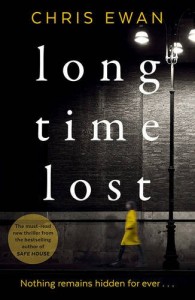 He becomes involved in a case that puts him at risk from three different directions at once. Justice and survival both seem unlikely achievements and the twists and turns of his journey towards them provide a fast-moving and engaging story.
He becomes involved in a case that puts him at risk from three different directions at once. Justice and survival both seem unlikely achievements and the twists and turns of his journey towards them provide a fast-moving and engaging story.
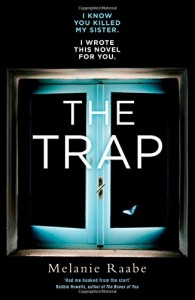 Melanie Raabe’s agoraphobic heroine has not left her house for years or had any contact with her family or old friends. She is a successful novelist, who refuses all requests for interviews or appearances at festivals. Having made lots of money from her writing, she can afford an excellent assistant and every comfort. Her house is divine. But, informing everything she does, is the dreadful memory of her sister’s murder – and her own glimpse of the killer. When she recognises his face in that of a television journalist, she plans her revenge, which reminded me a little of Death and the Maiden.
Melanie Raabe’s agoraphobic heroine has not left her house for years or had any contact with her family or old friends. She is a successful novelist, who refuses all requests for interviews or appearances at festivals. Having made lots of money from her writing, she can afford an excellent assistant and every comfort. Her house is divine. But, informing everything she does, is the dreadful memory of her sister’s murder – and her own glimpse of the killer. When she recognises his face in that of a television journalist, she plans her revenge, which reminded me a little of Death and the Maiden.
Writing a novel about the murder, she tells her publisher that she will give one interview – to this particular journalist – in her own home. When she has him at her mercy, she can do with him whatever she wants. But nothing turns out exactly as she plans and she is forced on a terrifying emotional journey back into the past. Beautifully written, and superbly translated by Imogen Taylor, The Trap is not only a very classy crime novel but also a penetrating examination of the challenging relationship between sisters.
Vanessa Ronan, an American living in Ireland, has set The Last Days of Summer in Texas, on the edge of a small prairie town. Jasper Curtis is released from prison, having served many years for an unspecified crime. His divorced sister reluctantly invites him to come back to the family home, where the two of them grew up and where she now lives in some poverty with her two daughters. 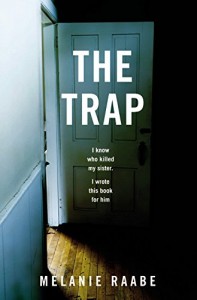 The local minister advises her not to have anything to do with Jasper, and many of the townspeople shun her company. Doom hangs as heavy as the heat over them all. There is no investigation here and no detection, apart from the 11-year-old
The local minister advises her not to have anything to do with Jasper, and many of the townspeople shun her company. Doom hangs as heavy as the heat over them all. There is no investigation here and no detection, apart from the 11-year-old 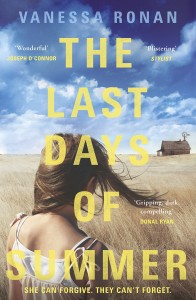 daughter’s questions about what Uncle Jasper did to send him away for so long. The relationship that grows between the two of them is the one encouraging aspect of Jasper’s increasingly terrible return to freedom.
daughter’s questions about what Uncle Jasper did to send him away for so long. The relationship that grows between the two of them is the one encouraging aspect of Jasper’s increasingly terrible return to freedom.
What this novel does, more than anything else, is display the importance of a stringently dispassionate and effective legal system. Victims and their families may feel that they have not had true satisfaction unless they can witness their tormentor’s mental and physical pain, but true justice can never be muddled up with revenge. Nor should it be.
